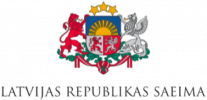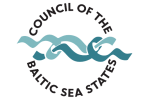The 44th Session of the Baltic Assembly and the 31st Baltic Council took place on 13-14 November 2025 in Riga, bringing together parliamentary representatives and government officials from Latvia, Estonia and Lithuania, as well as international partners and other guests. The event addressed critical topics concerning security, transport connectivity and regional unity.
Opening of the 44th Session
The session began with an address from the President of the Baltic Assembly Jānis Vucāns, who opened the Session together with the Speakers of the Baltic States, emphasising that progress can only be achieved through collective action based on mutual trust, responsibility and close cooperation between the legislative and executive branches.
Speaker of the Saeima of Latvia Daiga Mieriņa highlighted that today it is the Baltic States that stand guard over the EU and NATO, setting an example with their deeds. The common tasks of the coming years are related to the development of large infrastructure facilities, attracting additional funding, as well as increasingly deeper internal integration, bringing Baltic languages to life in border regions. “The potential of our trilateral cooperation is far from exhausted,” emphasised the Speaker.
President of the Riigikogu of Estonia Lauri Hussar emphasised that the geography and recent history of the Baltic region gave a unique ability to almost read each other’s minds. He also noted that Rail Baltica is a strategic project as it connects the Baltic States to the European infrastructure network while also strengthening military mobility; thus, there is a need to find sustainable funding solutions.
Speaker of the Seimas of Lithuania Juozas Olekas added that the strength of the Baltic States lies in their unity, trust and deep partnership, reflected in joint security efforts, increased defence commitments, coordinated support for Ukraine and historic progress in energy and infrastructure projects, demonstrating both responsibility and resilience.
31st Baltic Council
The 31st Baltic Council, chaired by Jānis Vucāns and Chair of the Cooperation Council of the Baltic Council of Ministers and Minister of Foreign Affairs of Latvia Baiba Braže, focused on transatlantic relations, the security situation on the Eastern Flank, strengthening the security of the Baltic Sea and the EU/NATO external border, support for Ukraine and containment of Russia, as well as the multiannual budget of the EU.
Jānis Vucāns highlighted several areas where cooperation has been successful, such as in the protection and management of external borders, but also addressed issues that need more attention, such as the establishment of the Baltic Science Fund or joint medical procurements. “The Baltic States have already started to coordinate their efforts to strengthen their common visibility, have identified target markets, strategic regions and events where joint information and promotional activities could have a positive impact. Next year, it will be particularly important to lay the foundations for a more structured and influential regional strategy,” he informed.
Meanwhile, Baiba Braže stressed that the primary task of the Baltic States is to continue strengthening their defence and deterrence capabilities, support Ukraine and weaken Russia: “It is our countries that are the first line of security – we together guard the external border of the EU and NATO, investing significant resources in both infrastructure strengthening and human resources. Where they guard the border every day, fight against Russian hybrid threats – the instrumentalisation of migration, and apply EU sanctions and prevent their circumvention”.
Minister of Foreign Affairs of Estonia Margus Tsahkna outlined the priorities of Estonia for its 2026 presidency - security, cross-border connectivity, particularly the completion of Rail Baltica, and support for Ukraine. Minister of Foreign Affairs of Lithuania Kęstutis Budrys agreed on the priorities, emphasising key security and defence issues affecting the Baltic region and the need for closer regional integration in response to hybrid pressures from neighbouring authoritarian regimes.
Key discussions and questions from Baltic parliamentarians focused on Rail Baltica, the legacy and importance of the Baltic Way, cooperation among NATO Centres of Excellence in the Baltic States, strengthening information resilience, regional health challenges and the role of the Baltic Assembly in parliamentary diplomacy. The ministers agreed that the historical goals of Baltic cooperation – breaking away from Russia’s sphere of influence, strengthening statehood and joining the EU and NATO – have been achieved. Therefore, the focus now is on helping Ukraine, weakening Russia until it ends the war in Ukraine, strengthening the security and economic development of the Baltic region and strengthening the Baltic role and defending its interests in various international formats. In this context, the Baltic Assembly was highlighted as a platform that brings parliamentarians together with governments and other parliamentary organisations, fostering valuable ideas and enabling a focus that extends beyond the Baltic region.
The 31st Baltic Council concluded with the signing of the Joint Statement, reaffirming the unified commitment of Latvia, Estonia and Lithuania to collaborate on shared goals, particularly in areas of security, resilience, connectivity and energy security.
Transport connectivity as a pillar of regional unity, economic development and security guarantee
A key thematic session focused on transport connectivity in the Baltic States. Chaired by Andris Kulbergs, Chair of the Economics, Energy and Innovation Committee of the Baltic Assembly, the session brought together the Ministers responsible for transport and infrastructure in the Baltic States to discuss how transportation can serve as a guarantee of unity, economic development, as well as security.
Minister of Transport of Latvia Atis Švinka emphasised that the Baltics are entering a crucial phase of turning long-planned infrastructure into tangible results, prioritising Rail Baltica, maintaining a unified position, especially in securing Connecting Europe Facility (CEF) funding, optimising costs and advancing construction and new rail links, including future connections with Ukraine. Minister for Infrastructure of Estonia Kuldar Leis highlighted the growing threat of hybrid attacks and stressed that only coordinated planning, strategic mobility and mutual trust can safeguard critical infrastructure. Minister of Transport and Communications of Lithuania Juras Taminskas focused on the need for efficient transport corridors for collective defence, rising cyber and airspace threats, completing Rail Baltica by 2030, securing additional EU funding and advancing key military mobility projects such as the Suwałki road, urging the Baltic States to speak with one voice in the EU to ensure these strategically vital projects are fully completed.
The discussion underscored the importance of advancing key transport routes like Rail Baltica and Via Baltica, both for improving passenger and freight mobility, as well as for reinforcing military mobility. It was concluded that accelerating construction timelines, securing stable EU funding and deepening cross-border cooperation will be crucial to turning long-standing plans into tangible results.
Addresses by foreign delegations
International partners and guests shared their perspectives, emphasising the importance of unity and shared goals in addressing global challenges.
Vice President of the NATO Parliamentary Assembly Agnes Vadai emphasised that the Baltic States remain a powerful example of determination and shared values, standing on the frontline of European security with strong support for Ukraine and leadership in defence spending, including decisions to exceed 5% of GDP. She highlighted the strengthened posture of NATO in the region, the critical role of military mobility and transport connectivity and stressed that continued unity, commitment and delivery on capability targets are essential as the Alliance faces ongoing Russian provocations and works to ensure the victory and lasting peace of Ukraine.
President of the Baltic Sea Parliamentary Conference (BSPC) Kristina Herbst highlighted that “connectivity means more than roads, ports and railways. It means building the links that keep the Baltic region united - politically, economically and digitally”. She also informed about the work of the BSPC Working Group on Strengthening Cyber and Information Resilience, where members from the Baltic States play an important role in addressing disinformation and hybrid threats.
Vice President of the Benelux Parliament Patricia Creutz-Vilvoye focused on transport connectivity as a priority, as military mobility will become increasingly important in the future, the security and defence dimensions of transport connectivity will deserve more attention. She also highlighted the practical advantages of defence cooperation as it leads to the efficient use of resources, offers opportunities for small and medium-sized enterprises and contributes to greater resilience among citizens.
Former President of the Nordic Council Bryndís Haraldsdóttir emphasised that the Nordic-Baltic partnership is one of the closest and most successful regional collaborations in the world. Even as global security threats intensify, there is a need to defend not only the borders but also the democratic values that unite the regions, strengthening cooperation against disinformation and hybrid attacks, deepening shared commitment to democracy, equality and human rights, and standing shoulder to shoulder with Ukraine.
Chair of the Ukrainian delegation to the GUAM Parliamentary Assembly Sviatoslav Yurash expressed gratitude for the continuous support for Ukraine and stressed that unity remains essential, with NATO providing a crucial anchor of security. He highlighted the importance of the GUAM Parliamentary Assembly as a bridge between partners, emphasising that closer cooperation with the Baltic Assembly can strengthen regional ties, reinforce the independence of their nations and demonstrate that together they can secure a free future.
Deputy Marshal of the Senate of Poland Rafał Grupiński added that the current security situation in the Baltic region calls for actions that go beyond peacetime assumptions, demanding new definitions and unconventional measures, including new instruments enabling an effective response. He also discussed the Via Baltica route of the North Sea–Baltic Corridor, where Poland has already completed its final section, while also welcoming the successful synchronisation of their electricity grids with continental Europe, supporting the completion of the second interconnection.
Co-Chair of the British-Irish Parliamentary Assembly (BIPA) Brendan Smith TD highlighted that since its establishment in 1999, BIPA has served as a vital forum for cooperation, strengthened by personal relationships and meaningful dialogue. He stressed that in the face of war in Ukraine and growing instability, unity, shared values, enhanced defence spending, and improved connectivity are more essential than ever for both individual and collective preparedness.
President of the Joint Baltic-American National Committee Martins Andersons addressed the participants by noting that the Baltic States are not just reliable allies to the United States, but valuable partners, delivering real security and economic results. The immediate goals include standing with Ukraine until victory and peace are achieved, keeping the transatlantic relationship strong and enduring and deepening the friendship between the Baltic nations, grounded in freedom, democracy and mutual respect.
Estonian Presidency in 2026
The Session concluded with the election of Timo Suslov as the President of the Baltic Assembly from 1 January 2026. He informed that the Estonian Presidency aims to focus on building a secure and resilient region through coordinated strategies, strong physical, digital and energy connectivity, as well as innovation-driven regional competitiveness. “The current geopolitical reality makes it clear that the Baltic cooperation is essential for parliamentary diplomacy. Through structured dialogue, mutual understanding, and common positions, we not only strengthen ties between our countries but also build influence beyond our region. Considering the evolving global landscape, it has become increasingly evident that coordinated Baltic engagement is a cornerstone of effective parliamentary diplomacy. Where state-level diplomacy may face limits, parliamentary cooperation creates additional pathways, offering agility and openness. As we look ahead, it is more important than ever to speak with a common Baltic voice, ensuring that our principles and priorities are reflected internationally. This unity is key to shaping a stable, democratic and secure European future,” the newly elected President concluded.
Photos
© Saeima (Reinis Inkēns and Ieva Ābele) and Seimas (Olga Posaškova)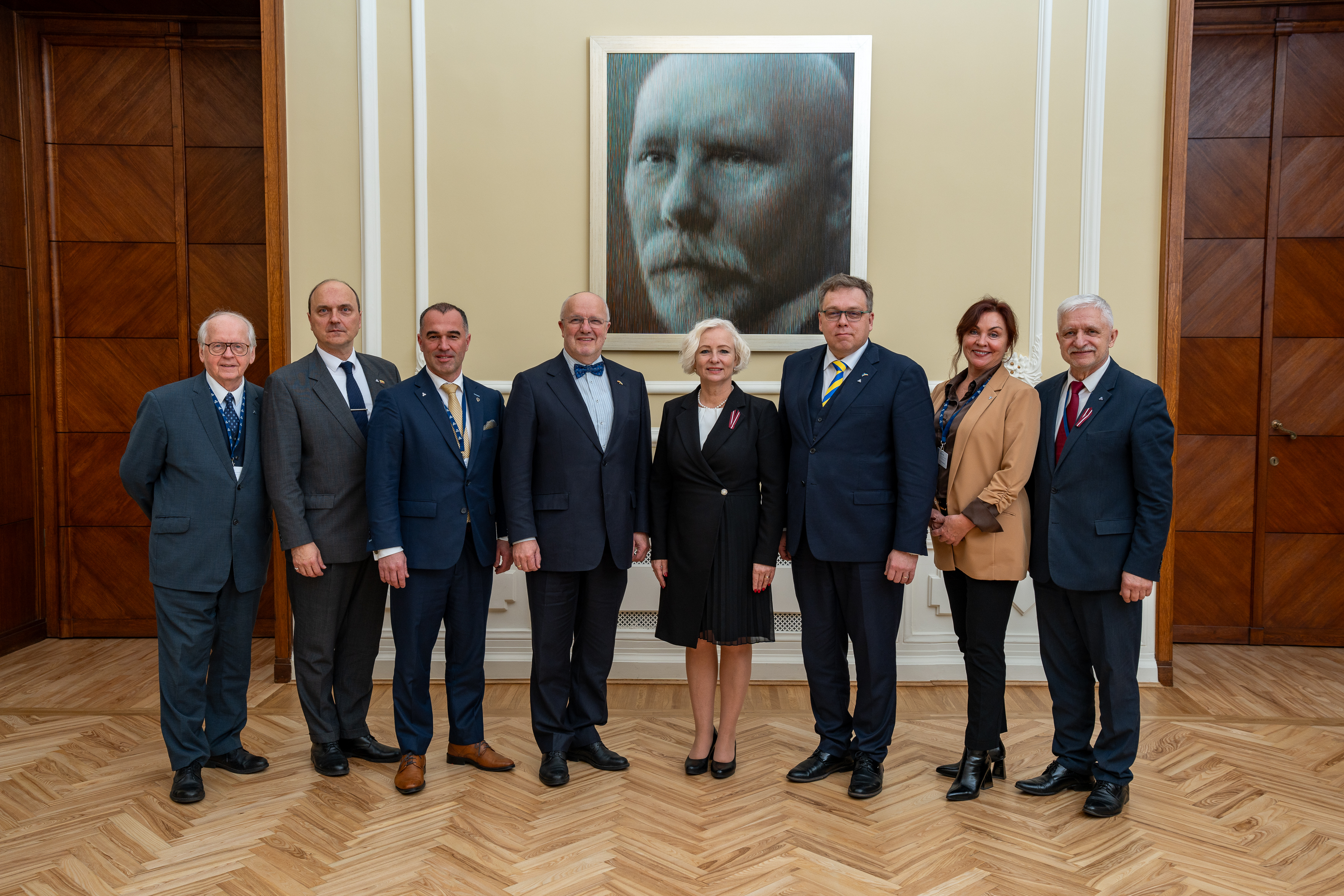
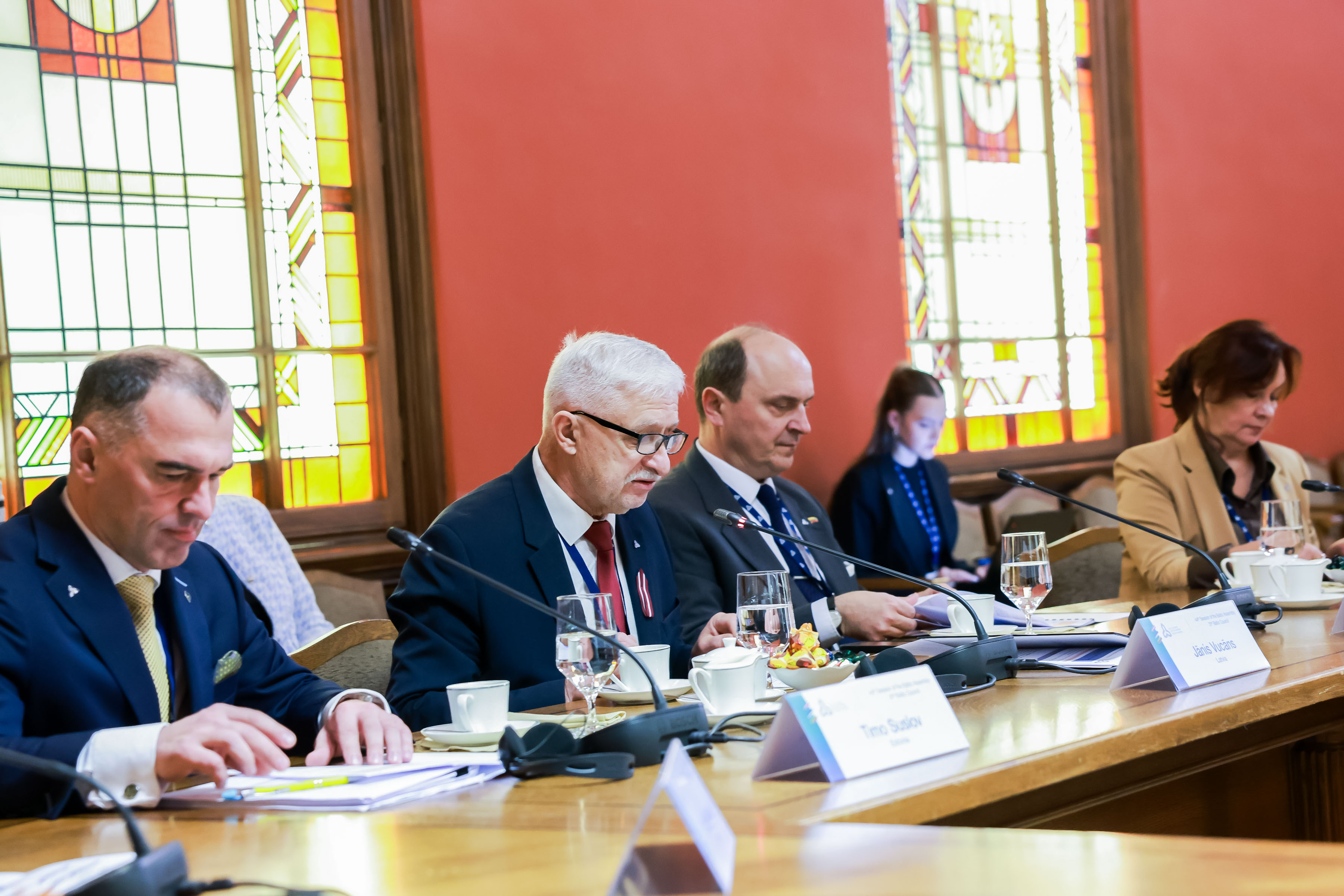
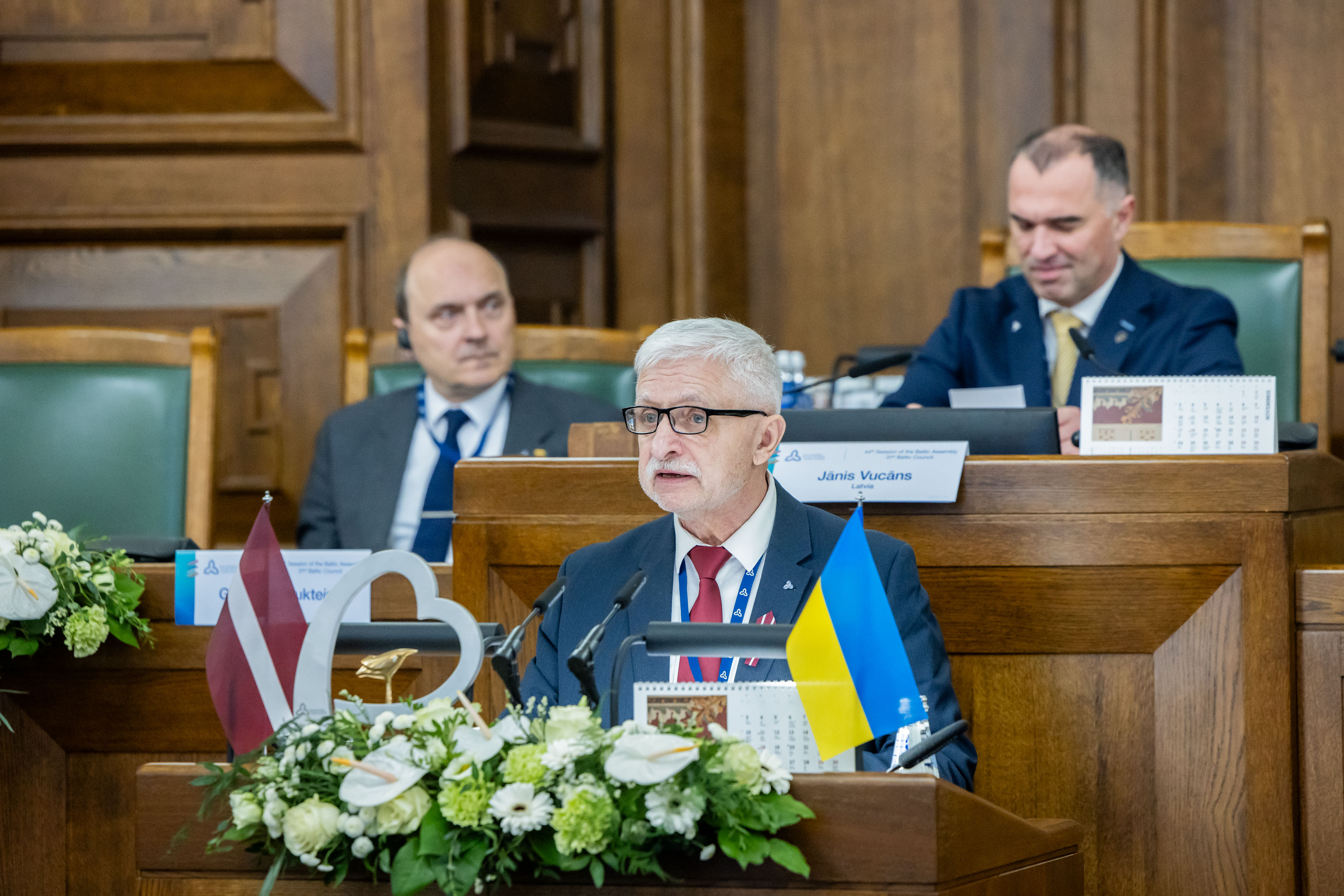
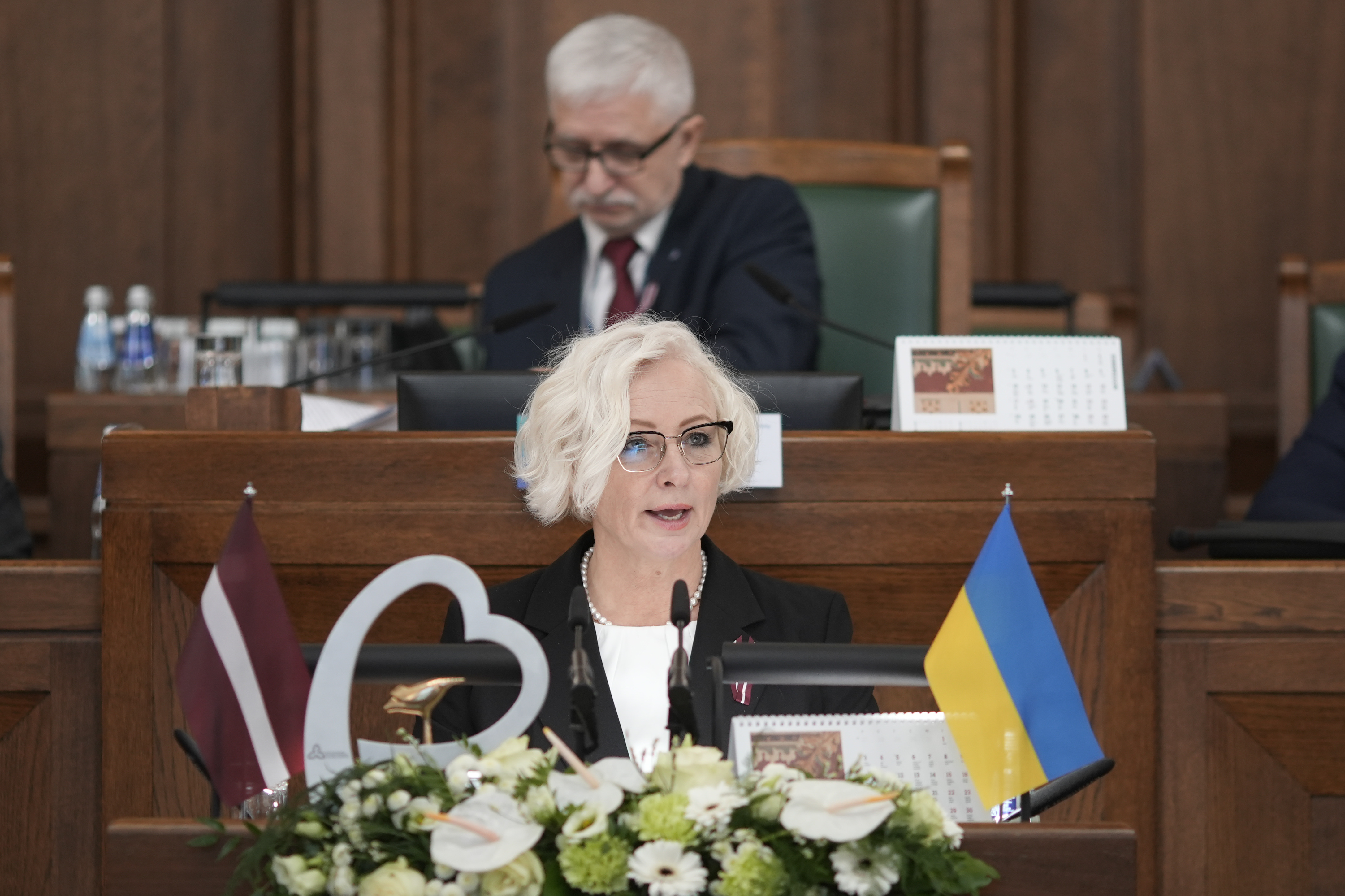
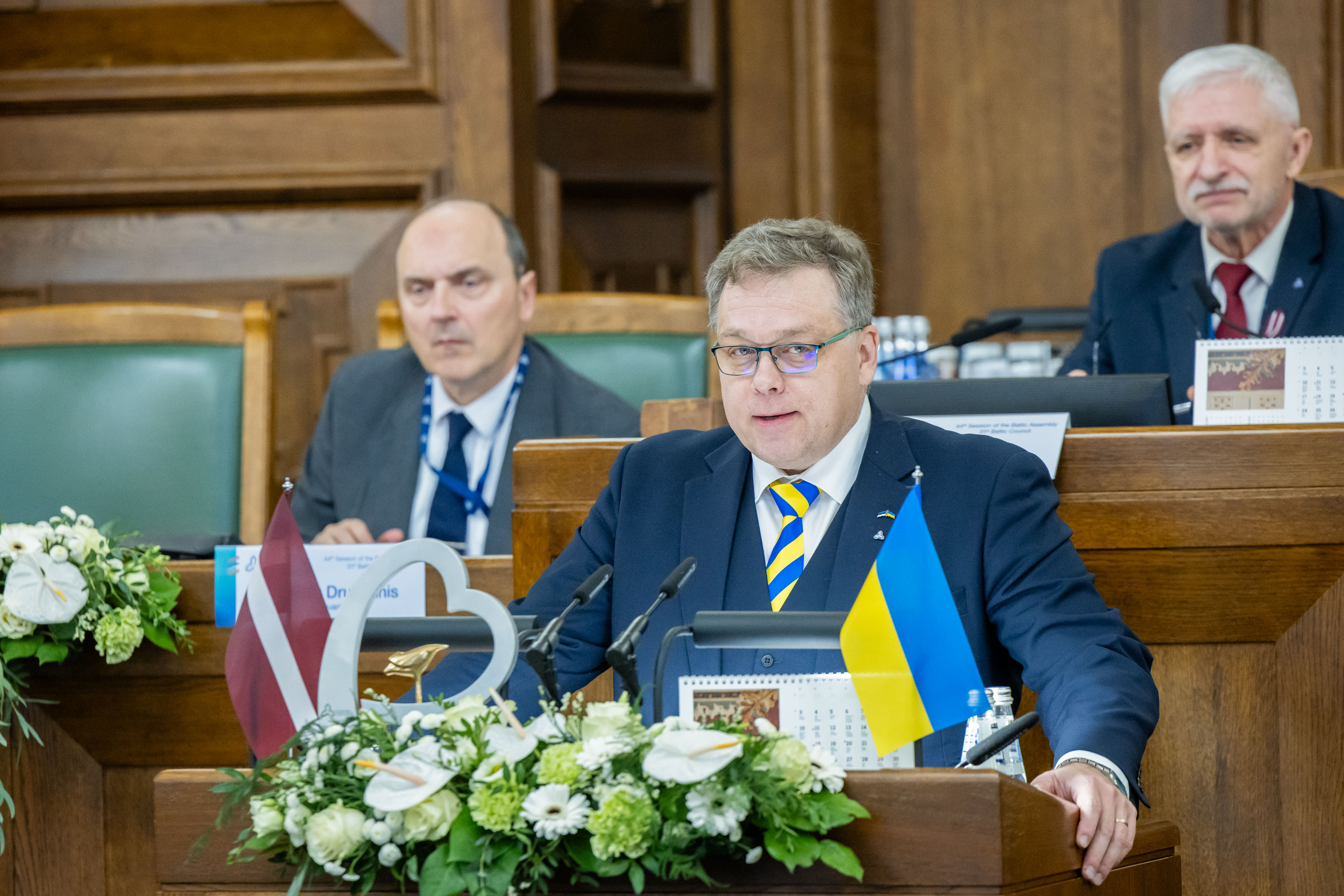
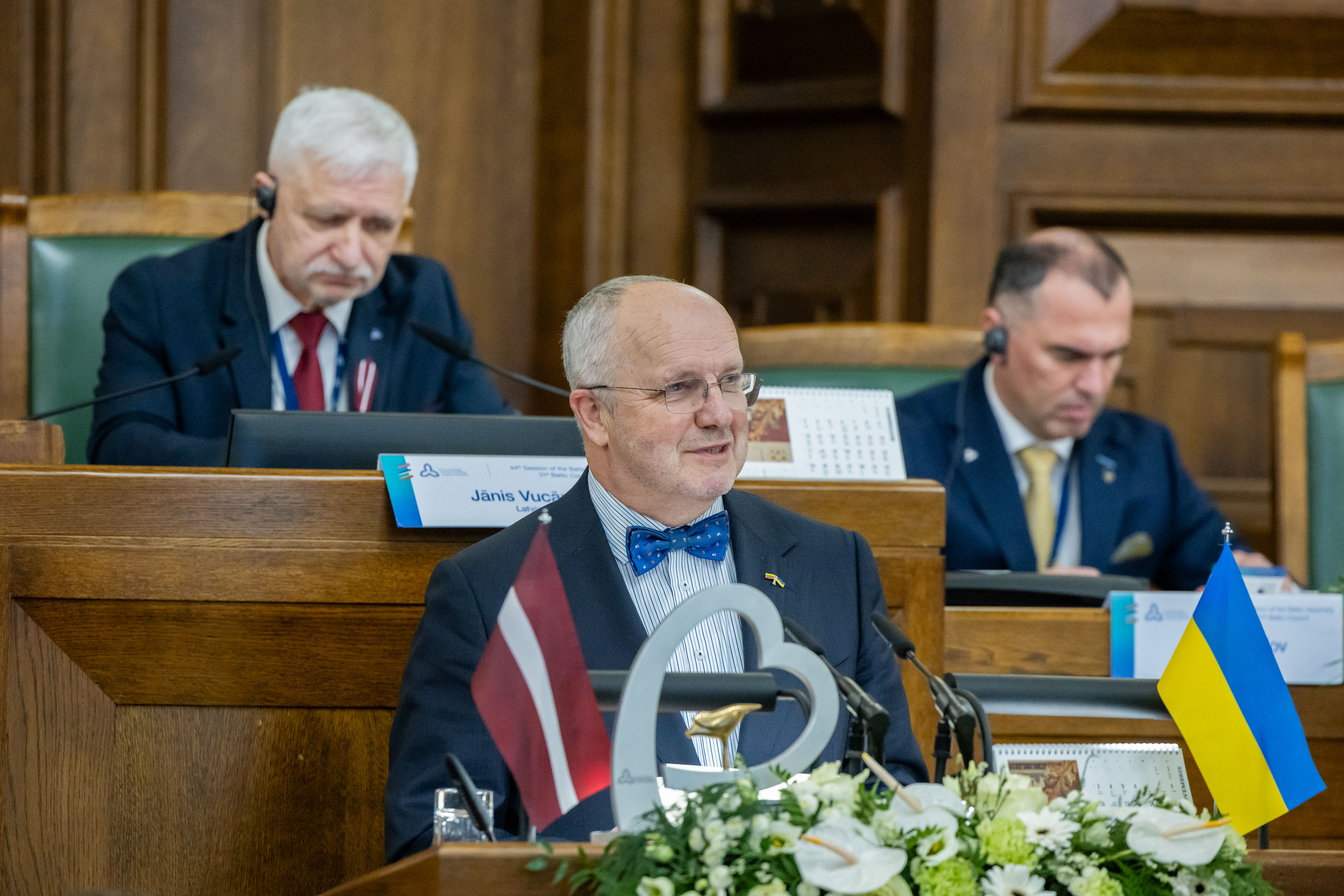
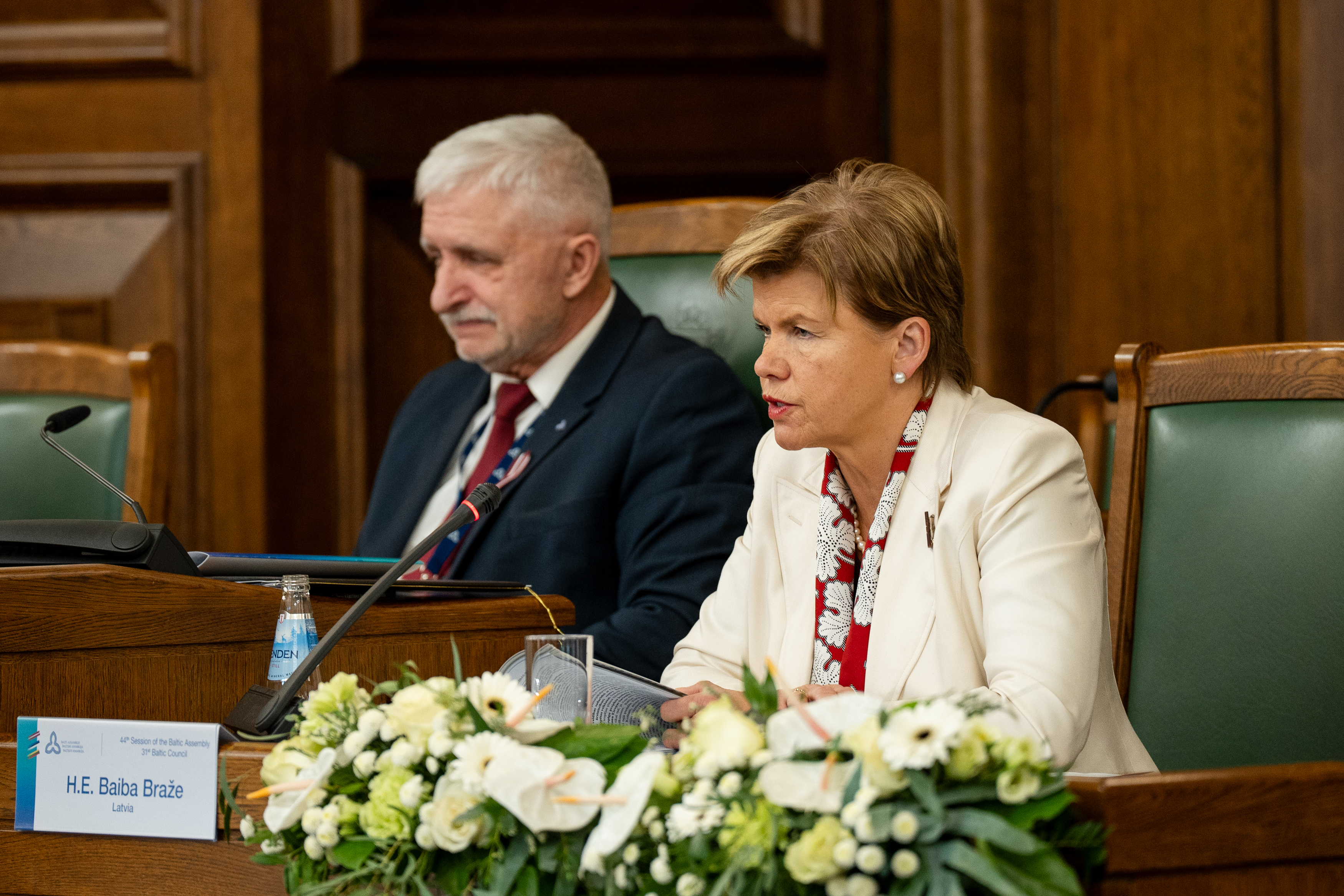
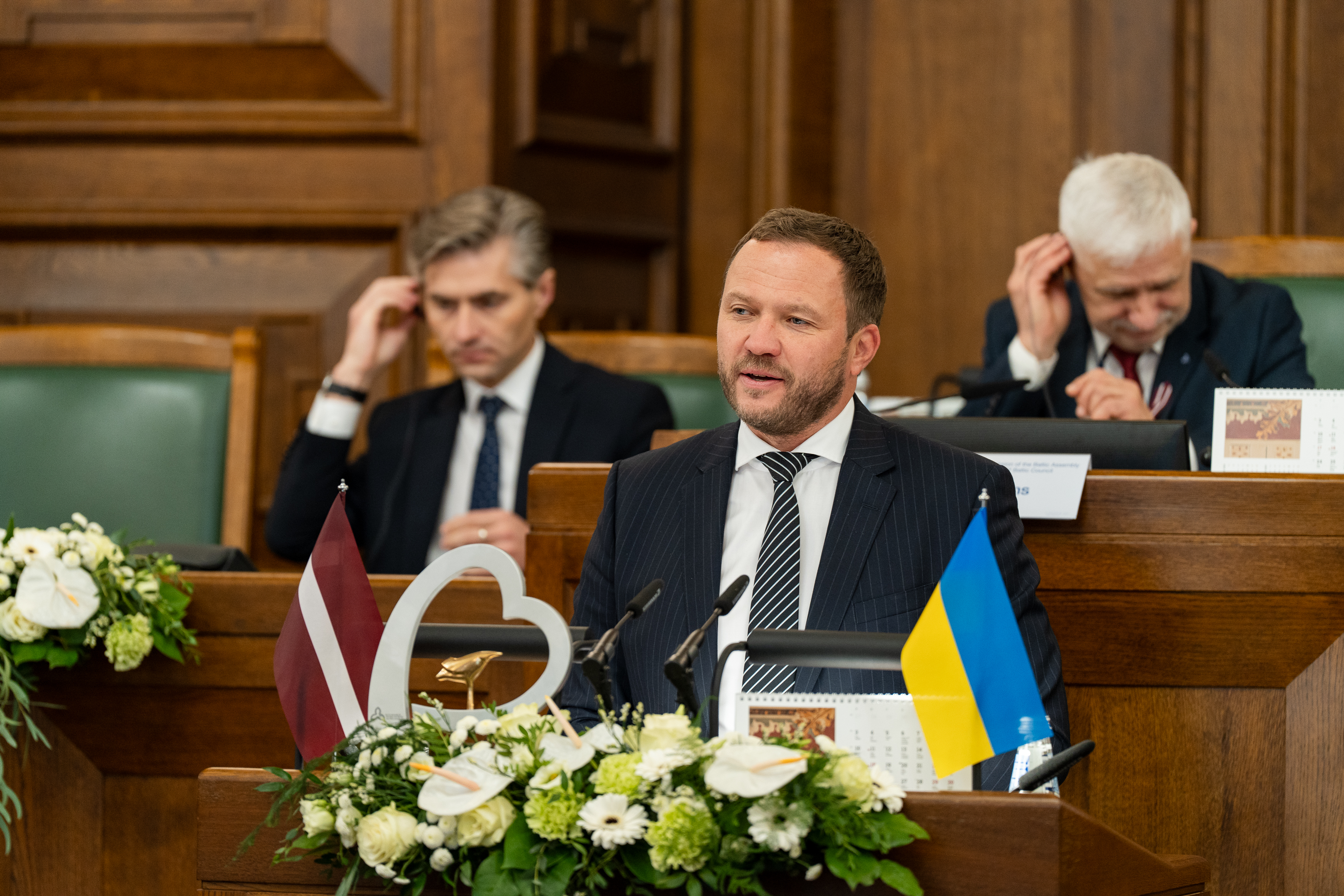
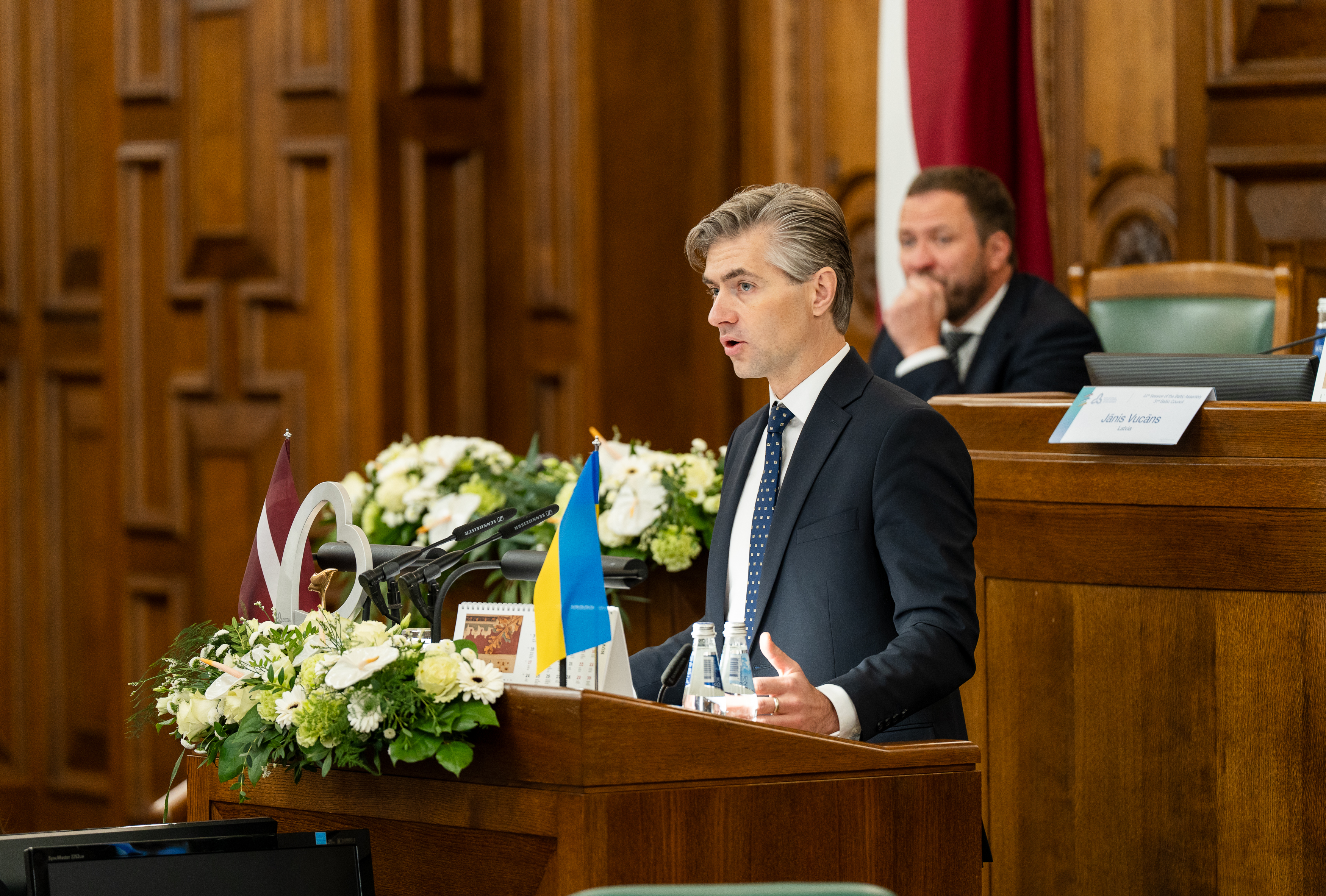
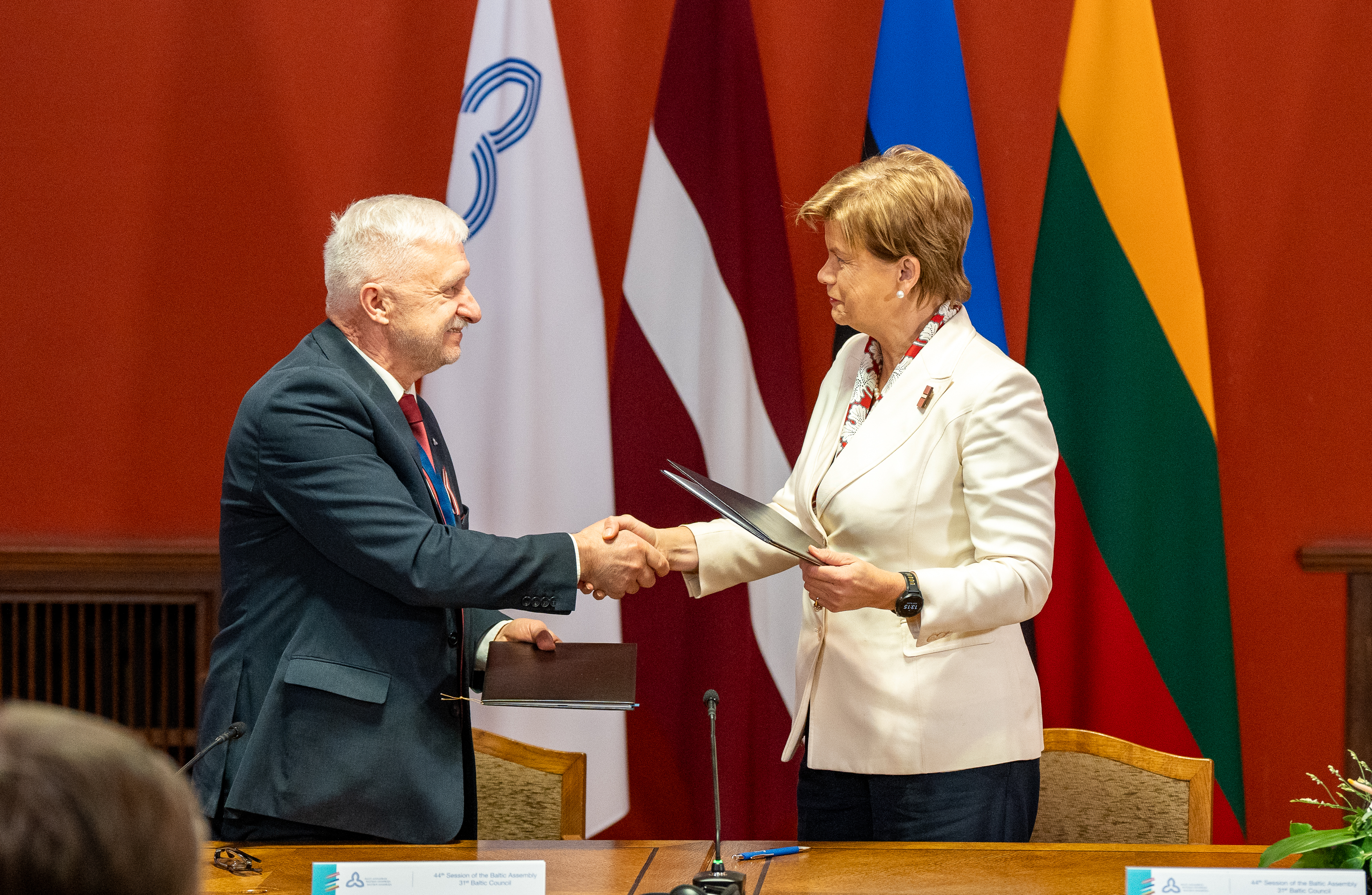
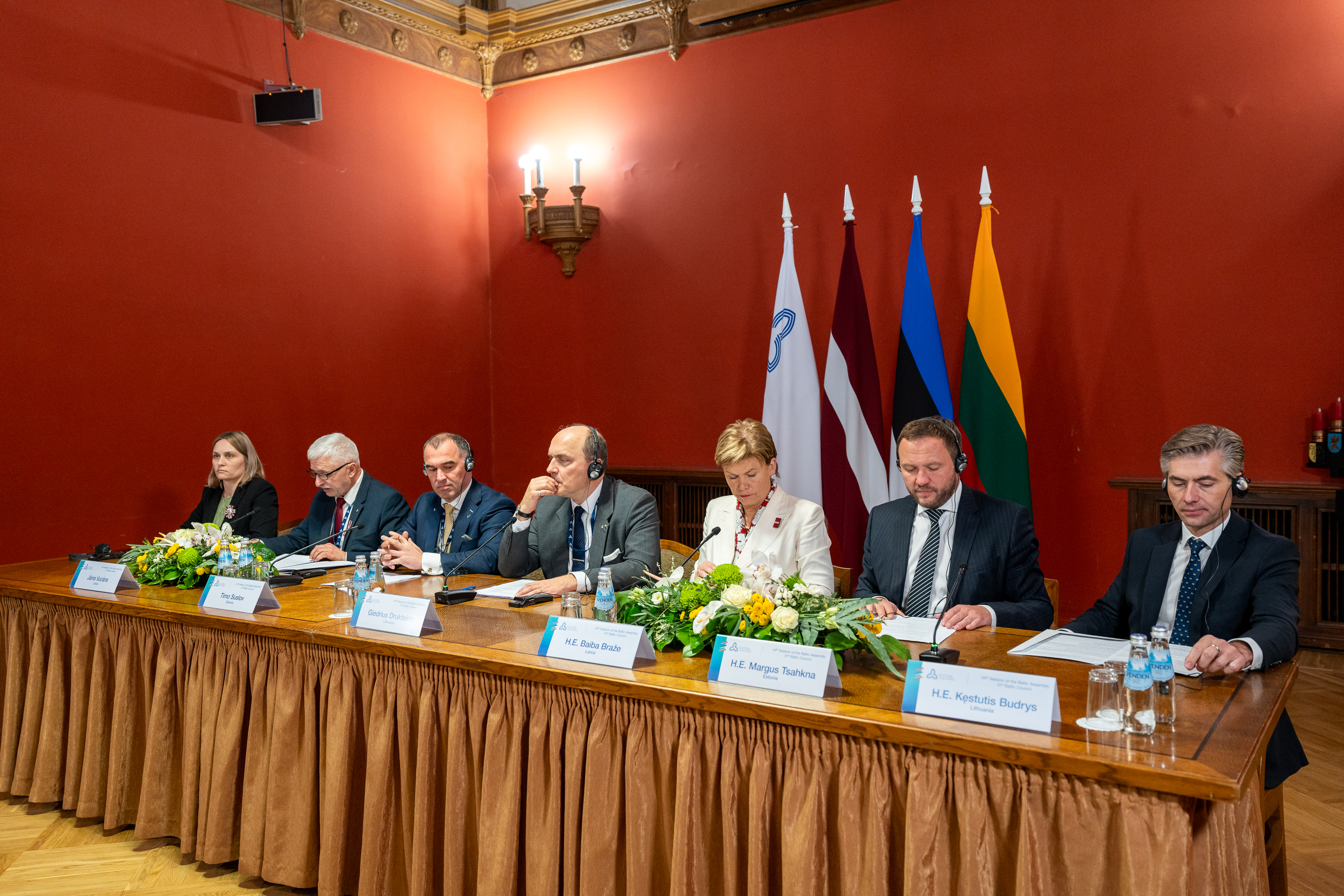
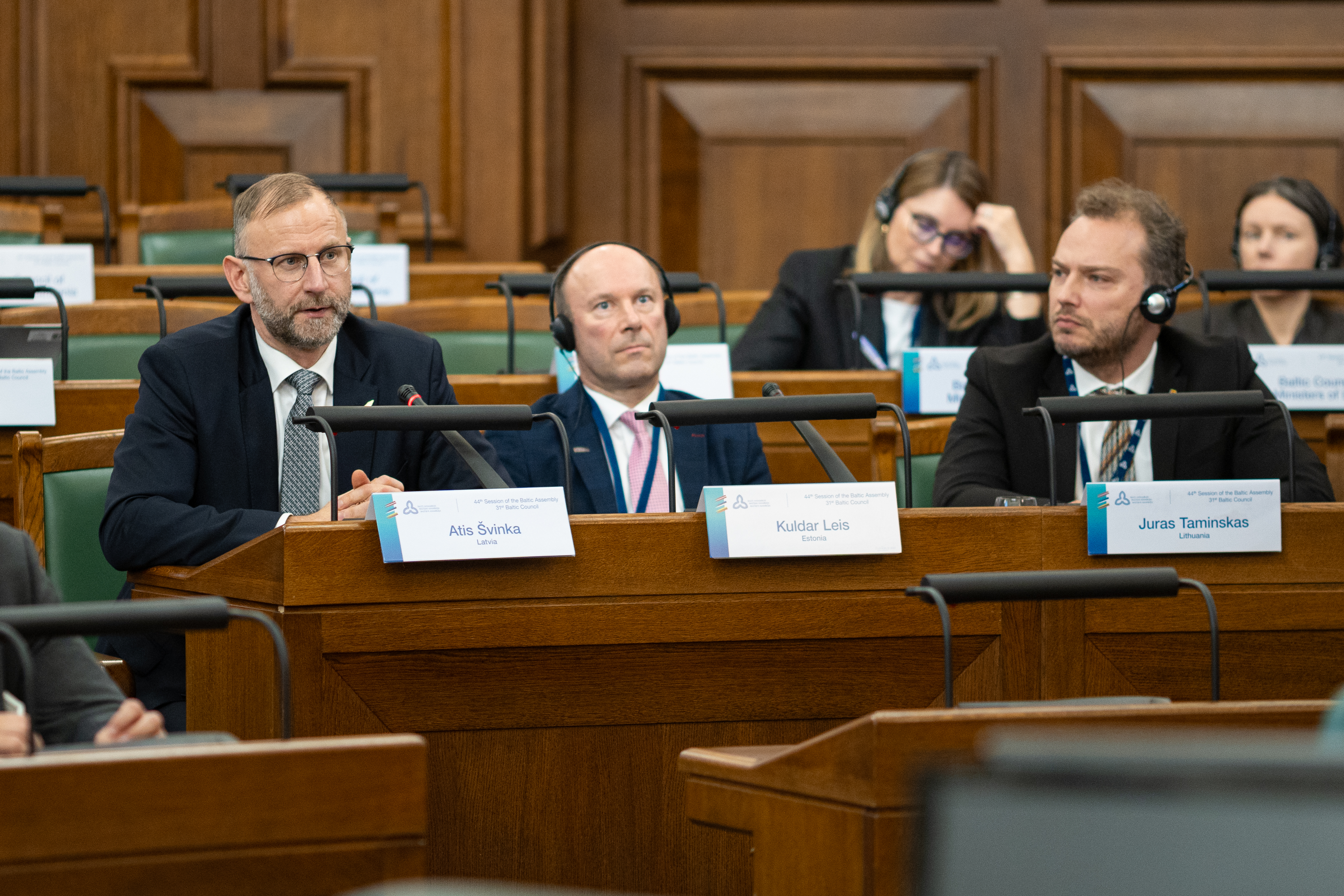
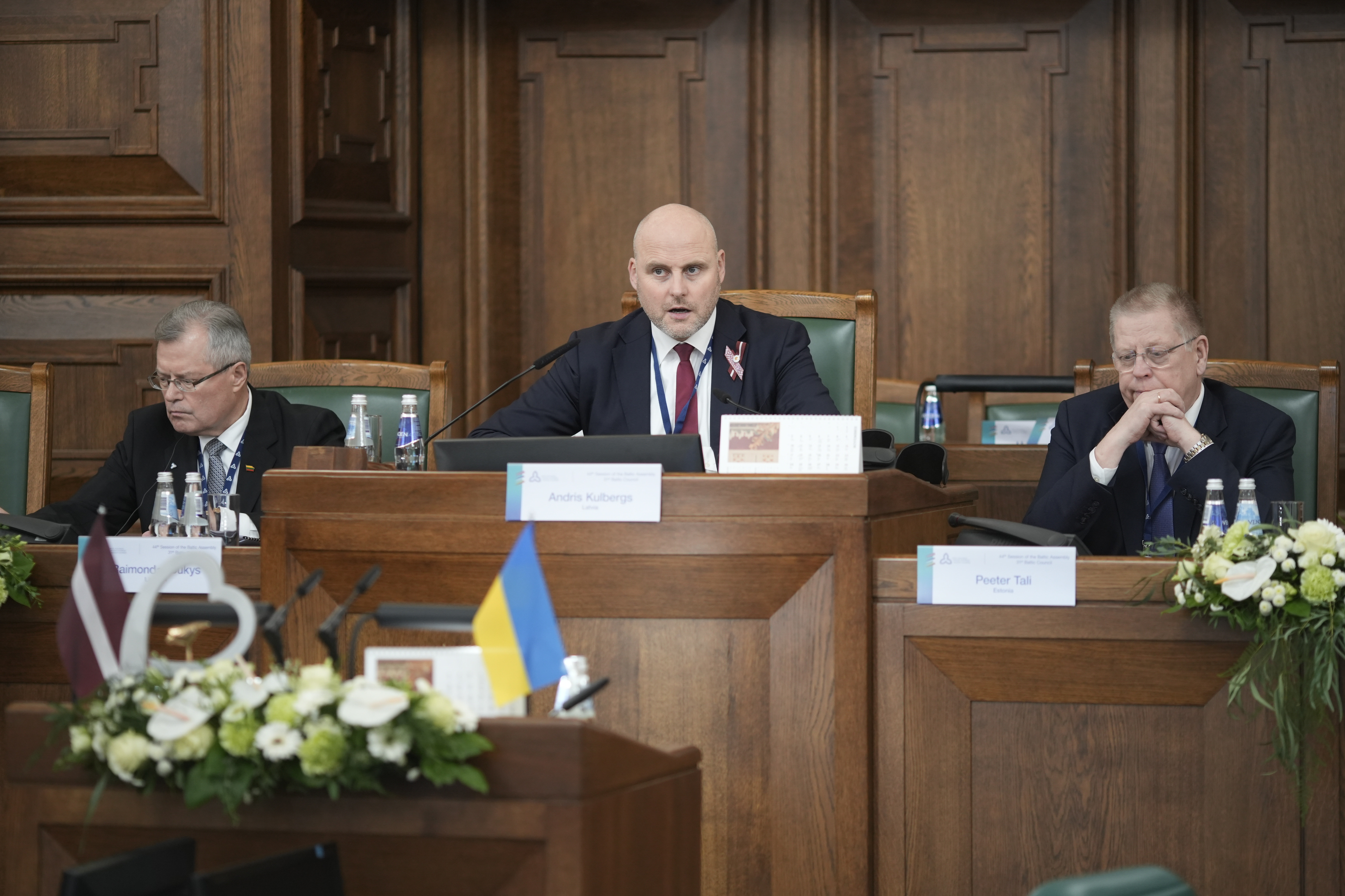
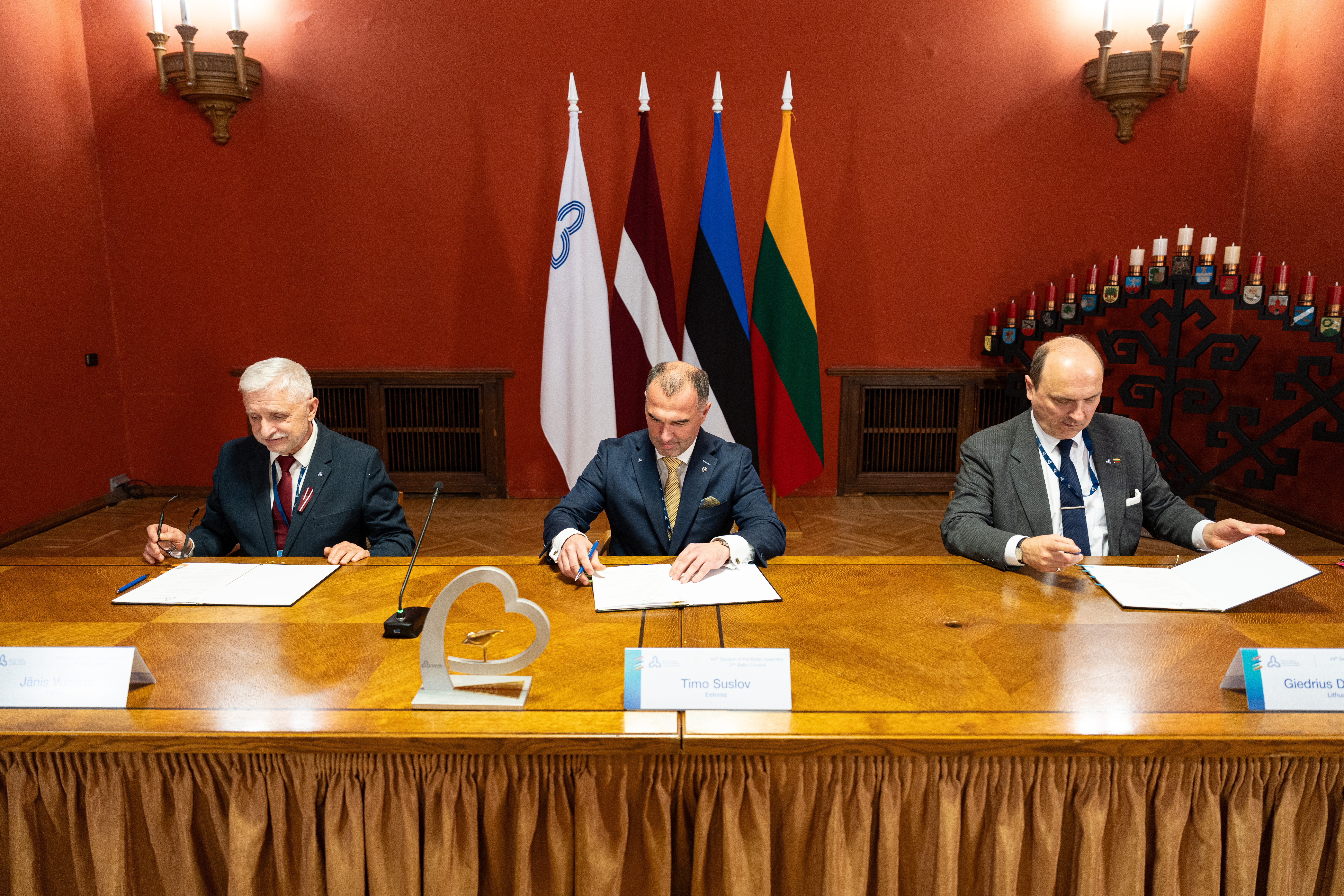
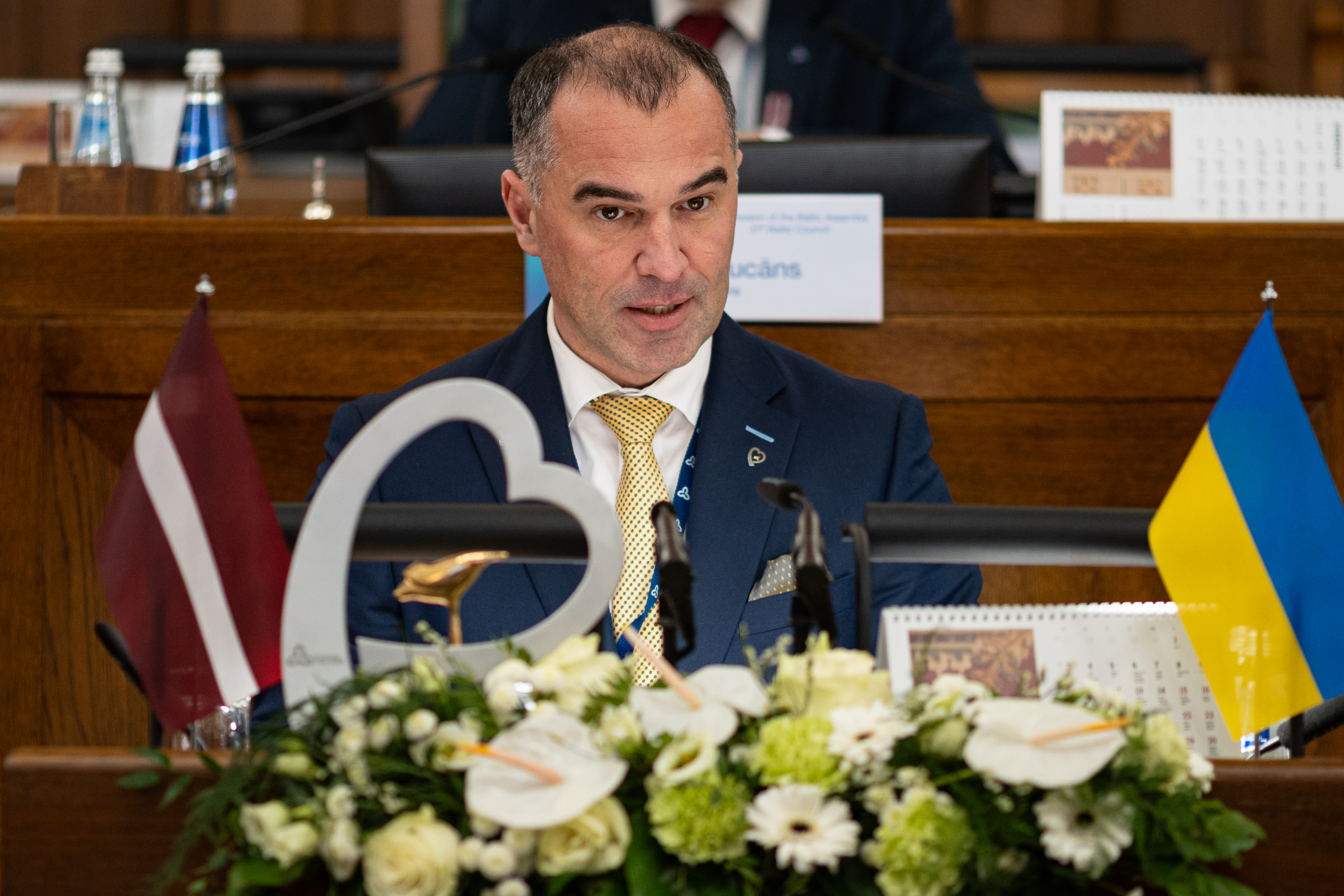
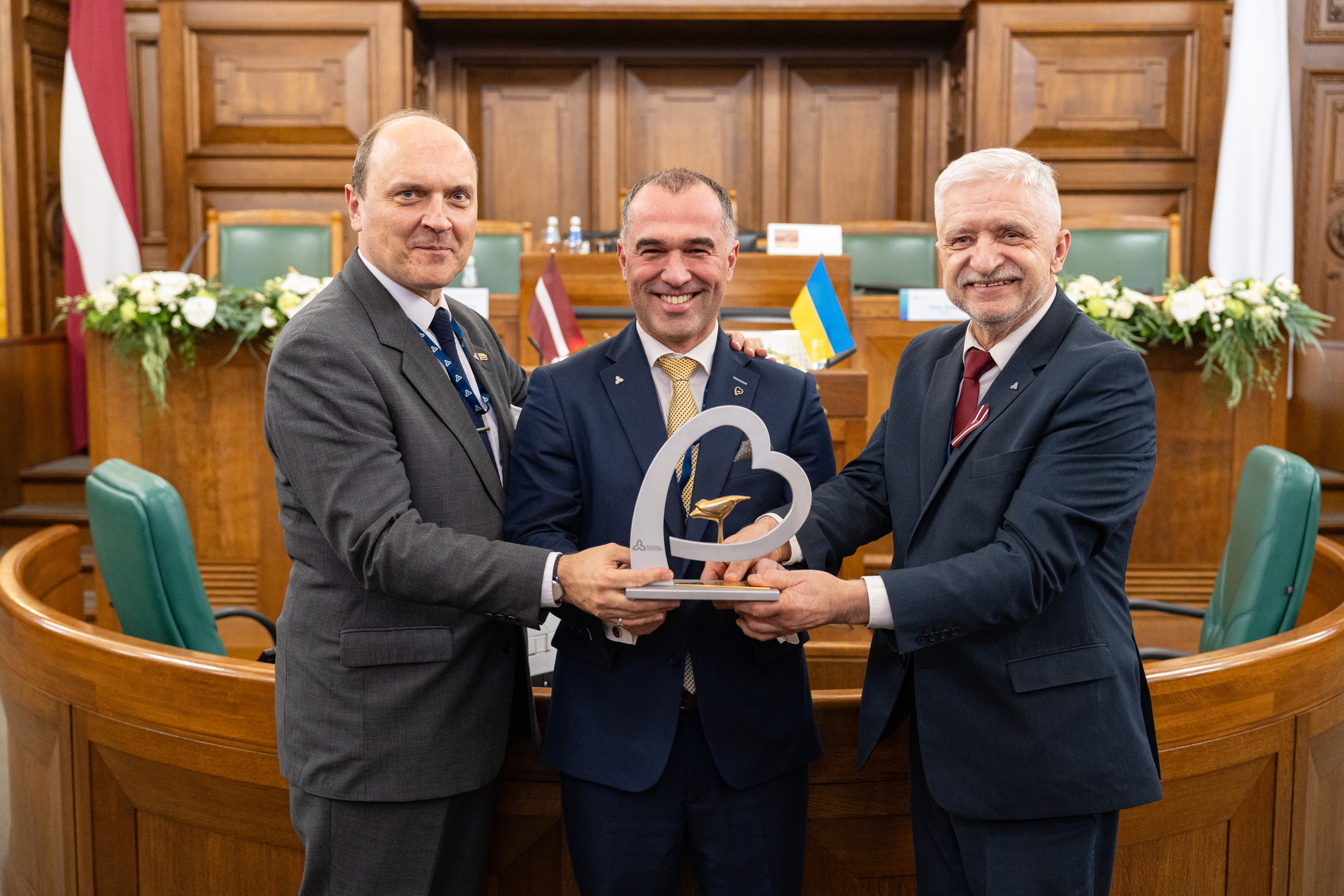
 Print
Print 

